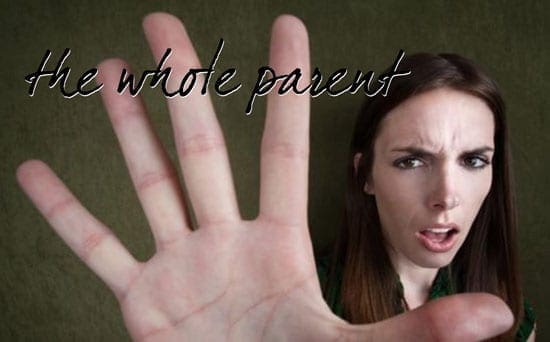Your ex-partner is not an ex-parent.
Co-parenting is about your kids and not your relationship with your former partner. But, often we get our emotions mixed up in the process of parenting after divorce and we let our anger and past hurts get in the way of what is in the “best interest of the children.” Let’s look at a few of the main issues co-parents face and see if we can build a successful strategy for diffusing the anger and putting the kids’ welfare as our guiding principle.
Common co-parenting issues:
- Unresolved anger towards your co-parent
- Depression
- Lack of compassion for your ex-partner
- Indifference towards your co-parent
- Social media venting
- Dating and the children
- Boundary problems
- Bad behaviors
- Disparaging comments to the kids
Unresolved anger towards your co-parent
Of course, you’ve got anger about the divorce. And you may very well have justifiable anger towards the actions, or your perceived actions, of your co-parent, however, you must take ownership of your own unresolved anger issues. Take your anger out of the co-parenting relationship and get some counseling or coaching on your own. Anger is not about your co-parent. Anger that bubbles over into your parenting relationship must be addressed. It is your responsibility to take charge of your emotional life post-divorce and anger may be a gating factor preventing you from moving on after the divorce. And, anger will certainly prevent you from forming future healthy relationships with future partners. Bottom line: Take your shit outside.
Depression
You and your co-parent may suffer from bouts of depression after the divorce. It’s natural. Grief is often no given the respect is deserves in our modern lives. We expect people to get up despite their troubles, and get on with the hustle of living. “Just do it,” may make a good sports rally cry, but when emotional health is involved, often the better slogan would be “Take it easy.” Talk things out with someone other than your ex-partner. If you notice depression lasting longer than a month or so, or if you notice suicidal thoughts, seek out professional help. You need to be your best as a co-parent. Depression can prevent us from functioning as rational and loving adults. (Al-Anon 12-step meetings are a great alternative to paid therapy if you need help breaking out of the isolation that commonly accompanies depression.)
Lack of compassion for your ex-partner
When you lose that “loving feeling” towards your co-parent it is hard to make loving and rational decisions. Compassion may be related to unresolved anger, but often it has more to do with compassion for yourself. Ask you are disappointed and despairing about the divorce and all the challenges you now face, it might be easier to blame your ex-partner for all the woes in your newly single life. But, your ex is not the issue. Your ex deserves the same love and compassion you had for them before the “love” ended. When you blame or judge your co-parent you are trying to assign your pain to some cause other than your own emotional health. Yes, your ex may do mean or irrational things, but your response should be one of compassion and caring. If your responses towards your ex-partner are more often vitriolic, you probably need to step back and take a considered look at your own compassion, your compassion towards yourself and your own healing.
Indifference towards your co-parent
Ignoring your co-parents’ request for information or scheduling changes is an abusive behavior. If you get a text from the other parent of your children and your first response is to ignore them, you might be acting out of anger rather than compassion. Logistics and parenting decisions should always be a collaborative process. If your partner is dating again and requests a change in the schedule to accommodate their new partner’s timing requests, you might do well to say yes. A happy co-parent is a better co-parent. A co-parent who ignores or delays responding to parent-related requests is exhibiting some unhealthy behaviors. You might want to look at what’s underneath your indifference: are you angry, are you sad, are you trying to create drama to distract yourself or hurt the other parent?
Social media venting
Just don’t do it. Unfollow, unfriend, and disconnect from each other’s social media accounts. You may think that staying connected via Facebook will lessen your anguish over the time you lose with your kids. You may want to remain “friends” but it’s not a healthy idea. It is a super-human co-parent who can look at beach vacation photos of their own children and not feel a pang of regret, sadness, or anger. The best advice is not to post about your relationship on social media at all. (See how well I followed my own advice on this one?) And let your co-parent’s parenting memories be theirs alone. Sure, when your kids are older, if they do social media, might want you to follow them on Instagram, but even that, seemingly innocent connection, can turn sour when the happy family pictures begin to show up and you are no longer in the equation. It’s best to leave social media out of your co-parenting relationship altogether, and take social media connections with your children under advisement. You’ve been warned.
Dating and the children
Leave your kids out of your love life. Let your children heal too. If you begin dating right after your divorce is finalized, fine, but don’t flaunt your newly found liberation in front of your kids. If you’re going to date after your divorce give your kids the courtesy of not putting them in that dramatic situation until after you know it is serious between you and the new partner. A good rule of thumb is not to introduce any “date” to your kids until you’ve been serious about them for over six months. This can prevent unhealthy attachments from forming between your kids and the new and exciting adult in their lives. Make sure you are committed to the dating relationship before bringing your kids into the picture. Sure, it’s common to want to include your children in your new-found happiness, but your emotional high might be hard for them to see. Young children are especially vulnerable to the emotional hurricane of love relationships. Make sure you’re love is the real kind and not the rebound kind before you bring your kids into the scene.
Boundary problems
Your ex-partner may very well be a narcissist. They may make an unreasonable request for schedule changes at the last minute. The Thursday text about a Friday change, “We’d like to take the kids to the beach this weekend, can we swap out for next weekend with you,” is not okay. Be firm with your boundaries and flexible with your children’s hearts. Sure, if your kids have an opportunity to go to Disneyland by swapping a few weekends with you, go for it, but don’t let your co-parent make last-minute changes or unreasonable demands that negatively impact your life or your children’s lives. Even if your co-parent has the right intention in mind, their requests and behaviors need to keep a healthy respect for you and the kids. When in doubt return to the official parenting plan. Be flexible when you can, and negotiate cheerfully with your co-parent, when possible. And, finally, hold yourself to the same gold standard of courtesy when requesting a schedule change or some other co-parenting negotiation. Kindness is king here. When you’re dealing with your kids’ lives, put their boundaries first, then negotiate with your co-parent towards a healthy result.
Bad behaviors
Always treat your co-parent with respect and compassion. A metaphor for co-parenting might be, “Treat them as well as you do a convenience store clerk.” You want to get in and get out with as little hassle as possible. When your co-parent is venting in front of the kids, it’s time to step in and set some boundaries. If they are constantly late for pickup or drop-off, you need to address the issue. Bad behaviors in co-parenting are usually a result of unresolved issues. Sure, your co-parenting might be consistently late for appointments, but when this lateness impacts you and the kids you need to address the root of the problem: disrespect for your time and energy.
Disparaging comments to the kids
It is never okay to bad mouth your co-parent in front of the kids. Actually, it’s not healthy to bad mouth the other parent, ever, but if you must trash talk, do it out of earshot of your kids. Any negative comments about your kids’ other parent will backfire. You may think that complaining about your ex to your kids is cute or funny. You might want to blow off some steam and your kids happen to be in the car with you when an uncomfortable call or text comes in. DON’T DO IT. Leave your bitching to therapy or drinks with friends. You’re kids don’t need to hear about your complaints. Actually, the less you complain in front of them about anything, the better off you will be. Set a high standard of respectful behavior for your kids to model. Release your snide remarks in the comments of a “divorce blog” and not air them in the car on the way to kid-exchange with your former partner.
Here’s the golden rule of co-parenting:
Focus on the happiness of your kids.
All your issues with your co-parent are yours alone. You don’t even need your former partner to deal with your problems. Work out your anger with a therapist, 12-step group, or friend. Leave the kids out of the crossfire.
Let your kids be kids. Let your co-parent live their own life without drama from you. And deal with your own issues so you don’t leave their legacy to your children.
Namasté,
John McElhenney – life coach austin texas
Facebook | Instagram | Pinterest | @wholeparent
Related Posts:
- Missplaning Divorce: How Women Benefit In an Imbalanced Divorce
- My Single Parent Slogan: Every Day At a Time
- A Real Man in Divorce: How My Ex-wife’s New Husband Stirs Up Discord
- Fathers and Daughters: Divorce Affects Us Differently
You can find all of my books on AMAZON.





